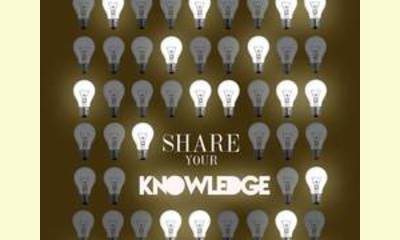|
|
UNESCO to make its publications available free of charge as part of a new Open Access policy
un articulo por UNESCO Media Services
UNESCO will make its digital publications
available to millions of people around the world
free-of-charge with an open license. Following a
decision by the Organization’s Executive Board in
April, UNESCO has become the first member of the
United Nations to adopt such an Open Access policy
for its publications. The new policy means that
anyone will be able to download, translate, adapt,
distribute and re-share UNESCO publications and
data without paying.

click on photo to enlarge
Janis Karklins, UNESCO’s Assistant Director-
General for Communication and Information,
announced the new policy during the opening of the
World Summit on the Information Society
Forum in Geneva on 13 May.
“Researchers from all countries, but especially
from developing and least developed countries will
benefit and capitalize on Open Access to
knowledge,” said Janis Karklins, UNESCO’s
Assistant Director-General for Communication and
Information. “Our new policy will enable us to
increase the visibility, accessibility, and rapid
distribution of our publications.”
By adopting this new publishing policy, UNESCO
aligns its practice to its advocacy work in favor of
Open Access and strengthens its commitment to the
universal access to information and knowledge.
The Open Access (OA) movement was born in the
scientific community to address the spiraling
costs of the scientific literature, which is
essential to researchers. A wide range of
universities, institutions and governments support
it as an alternative to the traditional model of
knowledge dissemination through costly academic
journals.
Starting from July 2013, hundreds of downloadable
digital UNESCO publications will be available to
users through a new Open Access Repository with a
multilingual interface. All new publications will
be released with an open license. UNESCO will also
seek ways to apply it retroactively, i.e. to works
already published.. If UNESCO enters into special
agreements with publishing partners the Open
Access policy need not apply. Co-publishers will
be strongly encouraged to adhere to the
requirements of the new policy.
By championing Open Access for its publications,
UNESCO reinforces a fundamental goal of an
Intergovernmental Organization - to ensure that all
the knowledge it creates is made available to the
widest possible audience.
The full text of the policy is available on UNESCO website.
The new publishing policy is in line with UNESCO’s
Open Access to
Scientific Information Strategy and its main
components as well as its work on Open Educational
Resources and Free and Open Source
Software.
[Note: Thank you to the Good News Agency for pointing out this
article to CPNN.]
(Click here for a French version of this article or here for one in Spanish.)
|








|
DISCUSSION
Pregunta(s) relacionada(s) al artículo :
Free flow of information, How is it important for a culture of peace?
* * * * *
Comentario más reciente:
:
Perhaps the simplest way to illustrate the essential importance of free flow of information for a culture of peace is to discuss the importance of the control of information for the culture of war.
Here are excerpts from an Washington Post investigation two years ago entitled Top Secret America: A hidden world, growing beyond control. To read the original, click here.
"* Some 1,271 government organizations and 1,931 private companies work on programs related to counterterrorism, homeland security and intelligence in about 10,000 locations across the United States.
* An estimated 854,000 people, nearly 1.5 times as many people as live in Washington, D.C., hold top-secret security clearances.
* In Washington and the surrounding area, 33 building complexes for top-secret intelligence work are under construction or have been built since September 2001. Together they occupy the equivalent of almost three Pentagons or 22 U.S. Capitol buildings - about 17 million square feet of space.
* Many security and intelligence agencies do the same work, creating redundancy and waste. For example, 51 federal organizations and military commands, operating in 15 U.S. cities, track the flow of money to and from terrorist networks.
* Analysts who make sense of documents and conversations obtained by foreign and domestic spying share their judgment by publishing 50,000 intelligence reports each year - a volume so large that many are routinely ignored." . . .
"Every day across the United States, 854,000 civil servants, military personnel and private contractors with top-secret security clearances are scanned into offices protected by electromagnetic locks, retinal cameras and fortified walls that eavesdropping equipment cannot penetrate. . .
Much of the information about this mission is classified. That is the reason it is so difficult to gauge the success and identify the problems of Top Secret America, including whether money is being spent wisely. The U.S. intelligence budget is vast, publicly announced last year as $75 billion, 21/2 times the size it was on Sept. 10, 2001. But the figure doesn't include many military activities or domestic counterterrorism programs."
As we said in the draft Declaration and Programme of Action on a Culture of Peace that we sent from UNESCO to the UN General Assembly in 1998:
"98. It is vital to promote transparency in governance and economic decision-making and to look into the proliferation of secrecy justified in terms of 'national security', 'financial security', and 'economic competitiveness'. The question is to what extent this secrecy is compatible with the access to information necessary for democratic practice and social justice and whether, in some cases, instead of contributing to long-term security, it may conceal information about processes (ecological, financial, military, etc.) which are a potential threat to everyone and which need therefore to be addressed collectively."

|
|









